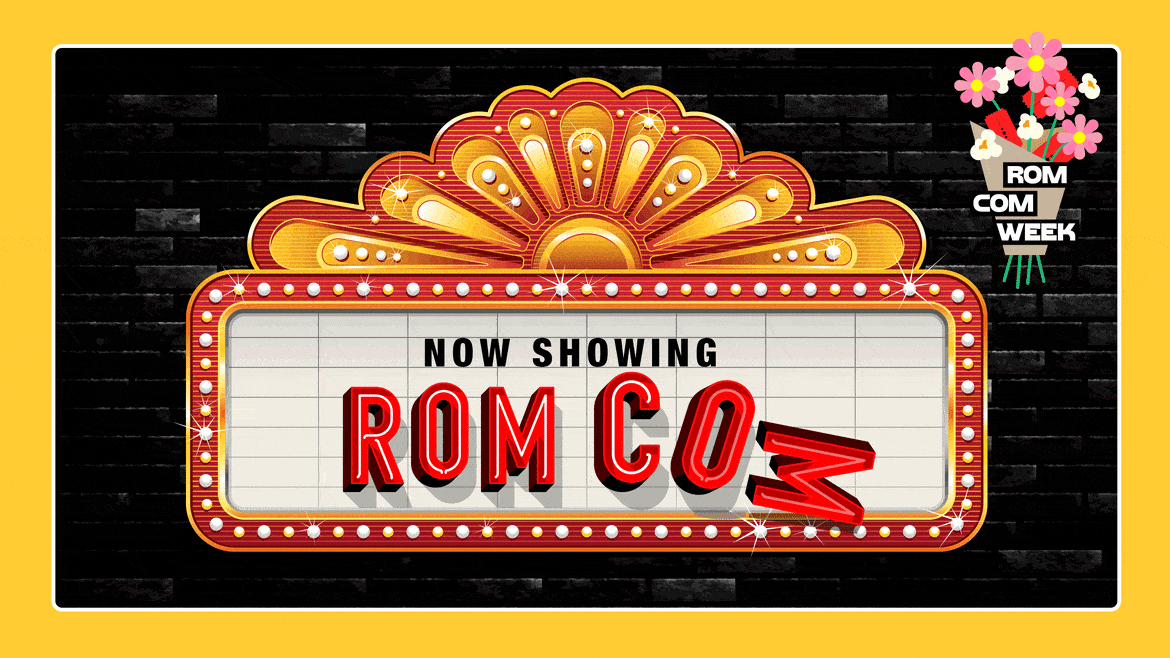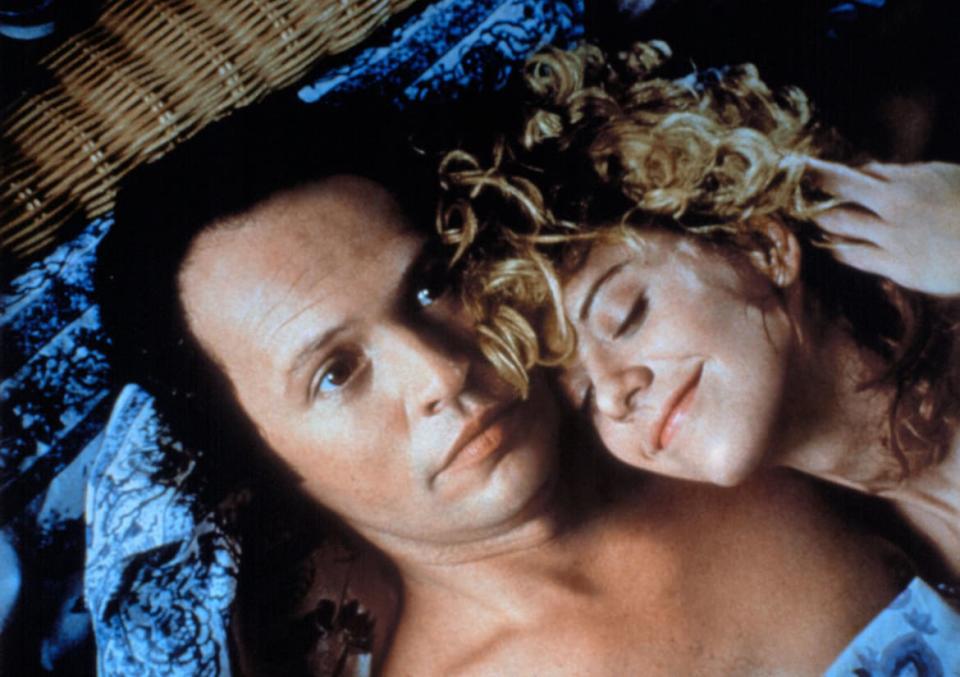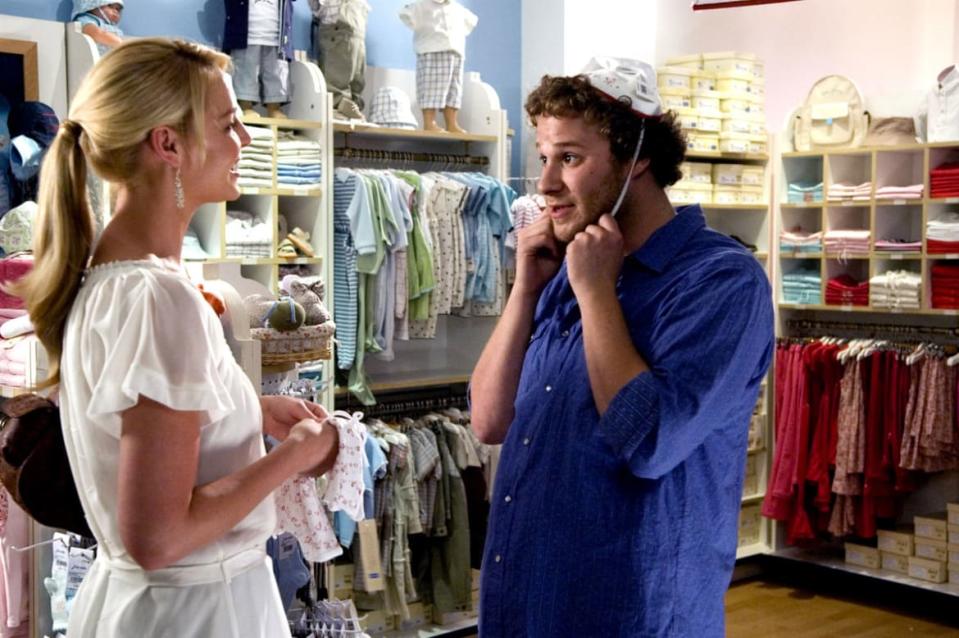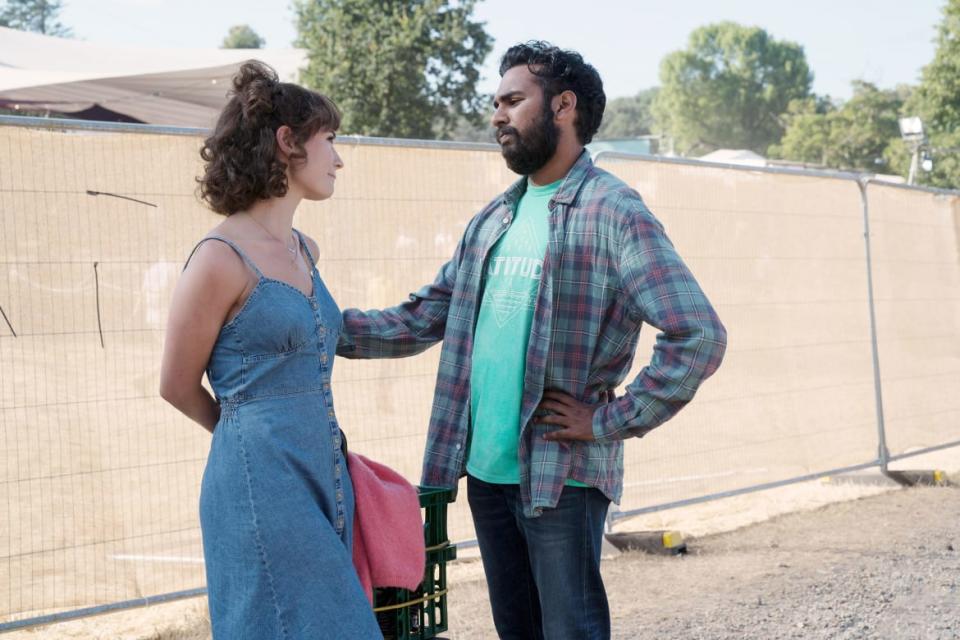Romantic Comedies Just Aren’t Funny Anymore

- Oops!Something went wrong.Please try again later.
- Oops!Something went wrong.Please try again later.
- Oops!Something went wrong.Please try again later.
Welcome to modern rom-com week at The Daily Beast’s Obsessed! In honor of two big romance releases this week—The Fall Guy and The Idea of You—we’re celebrating everything we love about the last 15 years of romantic comedies.
Love isn’t particularly funny in the “ha ha” sense—unless the first thing that comes to mind when you think of “funny ha ha” is Nelson Muntz pointing and laughing at someone. But romantic comedies have long tried to prove otherwise, finding humor (I’d call it “gallows;” you might call it “light and frothy”) in what I’d argue is one of life’s more traumatic, if valuable, experiences. It’s a noble pursuit, making someone laugh in the face of horrible vulnerability and awkwardness. But that once-successful endeavor is becoming less and less so with every passing year.
Let me put it this way: Romantic comedies aren’t funny anymore.
It’s already a tough gig to be both hilarious and sentimental, considering those two things are diametrically opposed. But I think that there are plenty of rom-coms that could do it—“could,” because they are fewer and farther between. These movies are the platonic ideal of the genre, to me: movies whose “com” is as important as their “rom,” so that one can still exist without the other. They should make you laugh out loud with actual jokes you’ll remember, not just goofy situations that service the plot. (It’s great when a comedy writer pens the script; it’s even better when there’s an actual comedian in front of the camera too.) Otherwise, we’re left with a movie that is half-assing it, simply sprinkling cutesy gags atop a love story instead of a genuinely funny movie with a big heart.
Perhaps I expect too much of the genre; it’s trying to do two things at once, and it’s easier to make people say “aww” than make them guffaw. And the big-budget studio comedy is itself dying off, suggesting that theatrical audiences may now see jokes as a side dish more than an entrée. With the May 2 release of The Fall Guy, this year’s first buzzy new rom-com, it’s clear that jokes aren’t even the only side dish on the plate; action is as important to this film as any of the jokes or love story. It’s almost surprising that more rom-coms haven’t already done that, considering the relative success action movies still have at the box office.

When Harry Met Sally
While it would be easy to be cynical about The Fall Guy, it actually serves as a great reminder of what makes a good rom-com work. For all its bloat, this is a film that doesn’t forget to be funny in between all the stunt work and the romantic tension—a bona fide comedy as well as a bona fide romance. The effort taken to do both (with a bunch of cool action sequences in the mix) really makes the difference between a garbage rom-com and a great one, and this summer suggests that perhaps there’s still just a chance for a genre sea change.
To move the genre forward again, it’s important to look backward. Take a movie like When Harry Met Sally, which is still widely regarded as one of the best rom-coms of all time. The first thing that comes to mind when thinking of that movie isn’t Billy Crystal and Meg Ryan’s cathartic kiss at the end—it’s, “I’ll have what she’s having.” Director Rob Reiner’s mother Estelle played the eavesdropping patron who drops that line, a quip Billy Crystal fed her. It’s not surprising that her delivery is impeccable, given that the Reiner clan was well-known for being an American comedy dynasty. A director with a comedy background is a major benefit to any rom-com—because they know how to make comedy. It’s also telling that Reiner cast as his leads the queen of rom-coms and a hugely popular comedian. It’s the perfect marriage of the genres, just as a rom-com should be.
Much of that movie’s success is also owed to its writer, Nora Ephron. Ephron is up there alongside Billy Wilder and the GOAT William Shakespeare as a rom-com master, who could perfectly enmesh the two genres’ sensibilities to create an even better third. Upon her death in 2012, obituaries made sure to underline just how funny she was—the daughter of comedy writers whose sense of humor is sometimes overshadowed by the “sentimental lore” that developed around her work. As a humorist, Ephron’s comedy existed even on a molecular level; she had a rare, keen understanding of the irony that something as potentially torrid as romance can actually be hilarious.
To that end, I like this quote from a 2012 interview with her in The Believer, about writing her semi-autobiographical novel (and, later, film) Heartburn. Heartburn lightly dramatizes the dissolution of Ephron’s marriage to journalist Carl Bernstein. “The whole time the marriage was breaking up and I was in a state of complete torment and misery, I knew that this would someday be a funny story,” she said of her divorce in the interview, given three months before her death that June. “I absolutely knew it. It was too horrible. It was too ridiculous not to be.”
Why Were 2000s Rom-Coms So Obsessed With Magazine Girlies?
Judd Apatow learned from the Ephron school of romantic comedy-writing, showcasing an innate ability to thread love into some incredibly funny circumstances. Apatow has written a lot about the nature of comedy, even publishing a book compiling works that inspired his sense of humor, many of which are more wry and observational than laugh-out-loud funny. I have since seen this book on many millennials’ bookshelves, a symbol of their sheepishly lovelorn nature and somewhat crass sense of humor. (I am one of said millennials.) Apatow’s own crassness in movies like The 40-Year-Old Virgin and Knocked Up is balanced out by their undeniable heart and lack of cruelty—he’s sensitive to how humiliating romance can be, and that translates into truly affecting sympathy.

Knocked Up
Apatow’s mostly known as a producer these days, and his cohort comprises other comedy directors who can naturally weave humor into the story of people falling in love. The Apatow Cinematic Universe is practically a subgenre of its own, flourishing in the late-aughts and early 2010s. Apatow and his acolytes don’t always get it right, but I will always appreciate a director that makes the attempt more than the one that doesn’t. I didn’t find Jennifer Lawrence’s No Hard Feelings funny in the slightest, but I respect that director Gene Stupnitsky (who co-wrote the Apatow-produced flop Year One) tried to inject jokes that could work independently of its romantic leads’ relationship. To me, that should be an added benefit and not the sole intention of a joke—it’s why the final line of Wilder’s Some Like It Hot is so perfect.
All 34 Modern Studio Rom-Coms, Ranked
Albert Brooks does the stand-alone joke well too, both as an actor and a writer-director. 1991’s Defending Your Life is an incredibly funny movie whose romance almost takes the backseat, due to its high-concept premise. But the love story is integral to its success, humanizing characters who are otherwise defined by superficial measures (like in this case, whether they are good enough people to go to Heaven). The same can be said of Harold Ramis’ Groundhog Day, whose premise may be more memorable than its sweet love story—but neither could exist without the other.
And we haven’t even talked about Nancy Meyers! Clearly, I could go on about the greats of yore. By contrast, today’s romantic comedies have little to write home about. They’re primarily helmed by directors without comedic chops, and it shows. Worse, they’re anchored by actors with no comic timing. Most egregious—and anti-funny—of all is that today’s rom-coms are often overwhelmed by their concepts at the expense of their script, or too committed to the story beats that must bring their characters together to have any time for jokes. There is no world in these films beyond the one revolving around a man and a woman (with some exceptions) falling in love. And if there were, it wouldn’t be one worth visiting.

Yesterday
When I talk about these kinds of failed rom-coms, I’m thinking of movies like Ticket to Paradise, where every gag was in service of its wonky conceit and eye-rolling, obvious plot; or Yesterday, a movie that is mostly a concept, with a script whose jokes seem to be optional and central love story scribbled onto the pages in pencil; and Happiest Season, whose lead couple should never have been together in the first place, and has one of the genre’s most insufferable rom-com sidekicks ever in Dan Levy.
I’ll leave you with a plea to the future of Hollywood, in an effort to reinvigorate a genre that we don’t want to die off but that constantly threatens to do so anyway. Comedians, saddle up for rom-coms again. Comedy directors and writers, start injecting some more kisses and cute couples into your scripts. Somebody shake Adam Sandler and Owen Wilson by the shoulders and tell them it’s OK to tell actual jokes again. The comedy part of the rom-com is falling by the wayside, and the ghost of Nora Ephron will not stand for this—and neither should audiences.
Get the Daily Beast's biggest scoops and scandals delivered right to your inbox. Sign up now.
Stay informed and gain unlimited access to the Daily Beast's unmatched reporting. Subscribe now.

